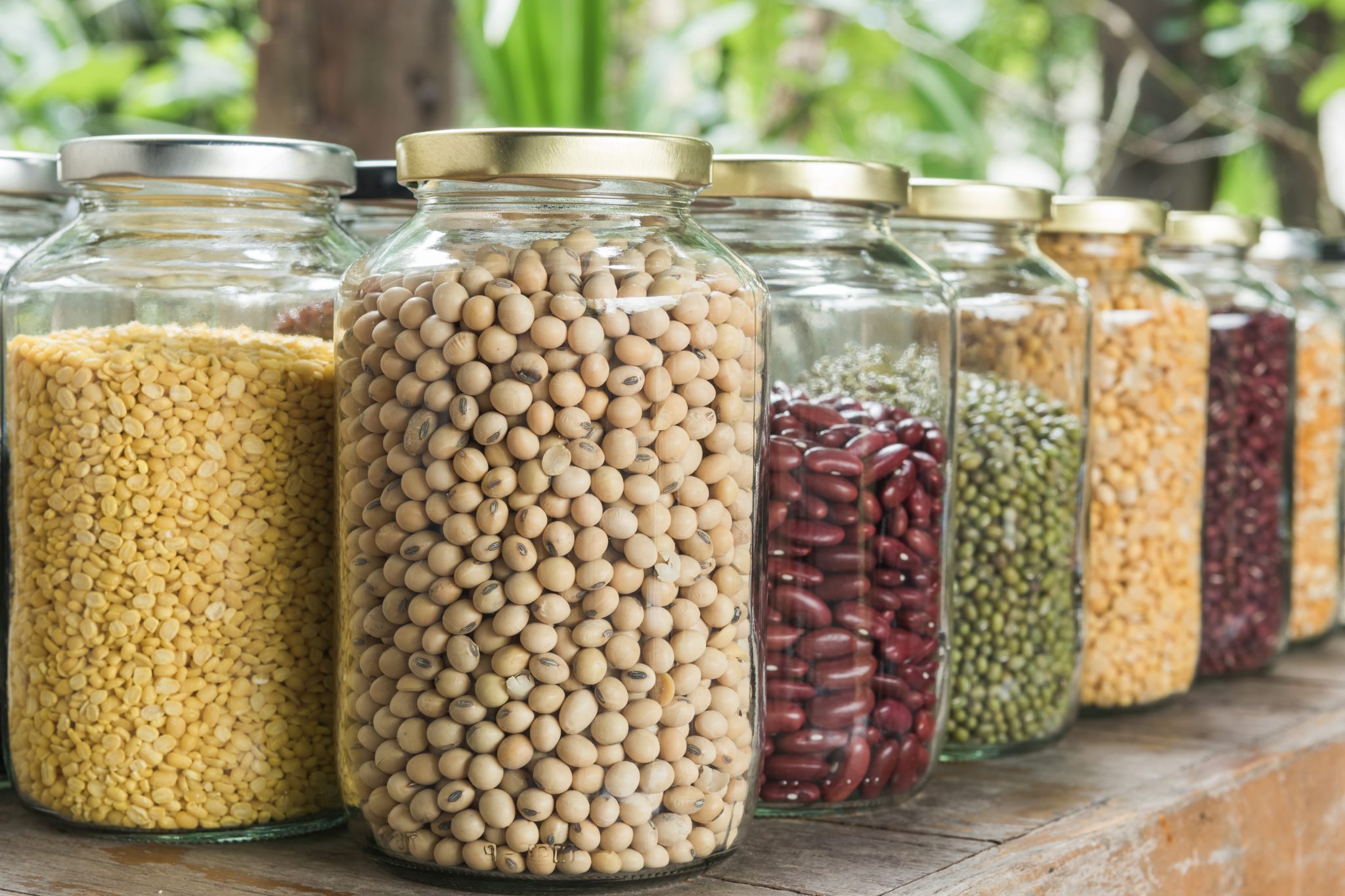Vegetables

*This is an excerpt from The Alabama Vegetable Gardener, ANR-0479.
Some Alabama gardeners like to save their own pea and bean seed to ensure a supply of that variety for the next year. It is best to set aside a short section of row specifically for growing seed and leave the pods on these plants to mature and dry before harvesting for seed.
Select only well-filled, disease-free pods for seed. After harvesting, spread the pods in a thin layer in a well-ventilated place for 2 to 3 weeks to dry. Shell pods and screen and clean seed before treating for weevils.
Weevils may be controlled in a small quantity of seed by heating them in a conventional oven at 120 to 130 degrees F for 20 to 30 minutes to destroy the insects. Temperatures in this range are fatal to most insects and do not impair the germination of the seed, but temperatures that exceed 130 degrees F may lower the germination of some seed. Place seed in a paper bag on the rack in the oven and set a shallow pan of water on the bottom to prevent excessive drying of the seed. Allow the seed to cool; then store in an air-tight container.
Weevils may also be controlled by placing the seed in a glass jar and adding 1 level teaspoon of 5 percent malathion dust per pint of seed. Place the seed in the jar and add the malathion dust on top. Make sure the lid of the jar is screwed on tight. Then shake the jar to distribute the dust throughout the seed. Always label the jar FOR SEED USE ONLY and store in a cool dry place. Never store seed that has been treated with any kind of pesticide near seed being saved for food or feed.
For more information, see other excerpts from The Alabama Vegetable Gardener, ANR-0479.
Kerry Smith, Extension Home Horticulture Associate; Ayanava Majumdar, Extension Entomologist; Charles Mitchell, Extension Agronomist, Professor, Agronomy and Soils; John Everest, Visiting Professor, Agronomy and Soils; Edward Sikora, Extension Plant Pathologist, Professor, Entomology and Plant Pathology; Joseph Kemble, Extension Specialist, Professor, Horticulture; all with Auburn University; and Rufina Ward, Research Entomologist, Natural Resources and Environmental Sciences, Alabama A&M University.
Reviewed October 2021, The Alabama Vegetable Gardener, ANR-0479

